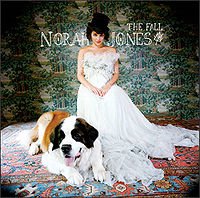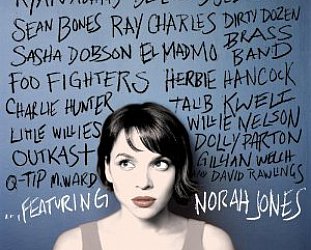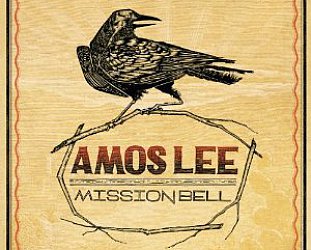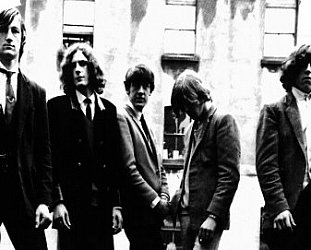Graham Reid | | 2 min read
Norah Jones: December

The smaller sales on Jones’ two albums -- Feels Like Home (04) and Not Too Late (07) -- after the extraordinary figures for her 02 debut Come Away With Me (20 million and rising) were no reflection of any diminishing talent.
Those follow-ups were subtle and layered outings, but on a casual listen sounded like more aural wallpaper for cafes and dinner parties where Come Away With Me already provided the décor.
Jones is smart songwriter and in recent years has been putting herself about a bit: she has sung with Willie Nelson, Rufus Wainwright and Q-Tip among others; played with the countrified Little Willies (their song about Lou Reed tipping over sleeping cows is very funny) and much more.
She seemed to be enjoying herself, hadn’t let success change her too much . . . Then it all fell apart.
She and longtime partner, sometime co-writer and bandmate Lee Alexander split; and she and her Handsome Band went their own ways.
Hence The Fall, where the title says so much.
By her own account she began listening to her favourite Tom Waits album Mule Variations — one of his most popular but Tom in Waits-genre mode — and has assimilated some of his disconcerting, undercurrent sonics (as well as some of his musicians) for this, in which she also co-writes with Ryan Adams on the eerie Light As A Feather.
The story arc about the end of the relationship runs through these 13 songs.
As an experiment and directional change it is only partially successful: at its best there are subtle songs such as the beautiful and metaphorical December with its Christmas carol piano; the opener Chasing Pirates which sketches out the slowly changing ground; the resignation and spare arrangement of Back to Manhattan (“as if it never happened”).
But when Jones approaches something like anger (Stuck, co-written with Will Sheff of Okkervil River) it is left to the musical undercurrents to convey that emotion, her vocals rarely stray beyond her signature sound.
Young Blood which hints at a brief relationship lacks much hot sensuality beyond the lyrics and throbbing beat; You’ve Ruined Me in which she is ambivalent then angry with herself and relationships isn’t much more than a chorus. The bluesy Man of the Hour at the end is about her best friend, her dog. Silly.
Some people turn the story of their separation into art, for much of this Jones has moulded hers into craft. But her nakedly emotional lyrics — which address lust, rage, pain, humiliation and petty revenge — are gripping and courageous. She’s telling a story familiar to many here, those who know a separation isn‘t like those in a softly-lit French movie.
It’ll be interesting to see if Lee Alexander gets an album out of the separation. Meantime Jones has ached, aged and changed and — although not entirely successful — The Fall could just be the gateway into an even more interesting and rewarding part of her career.







post a comment